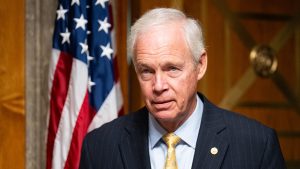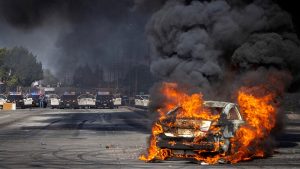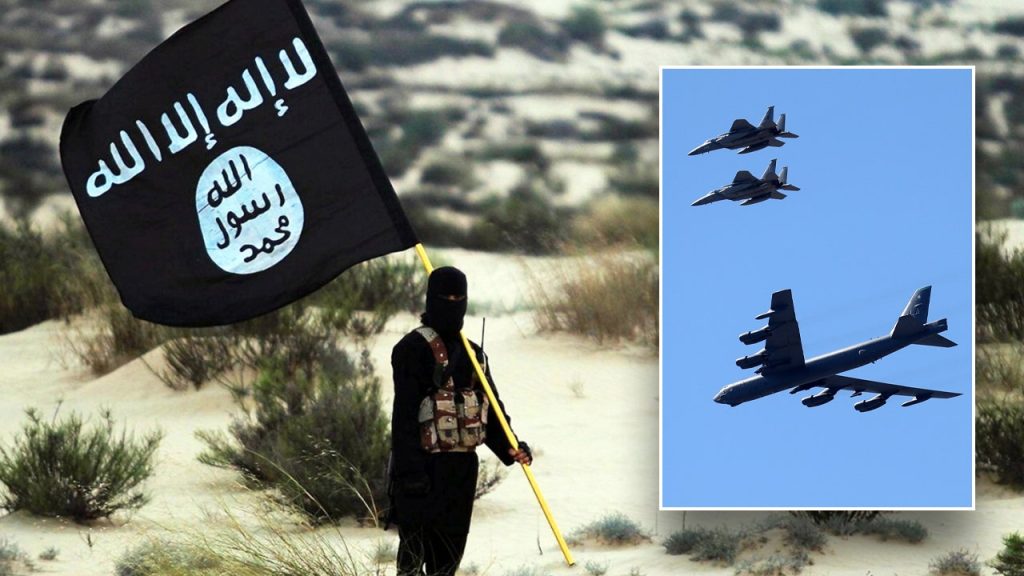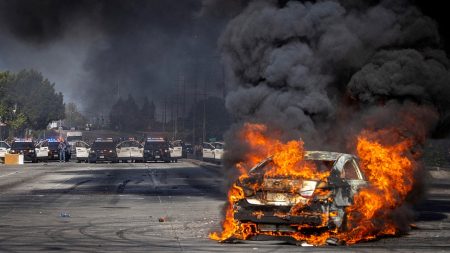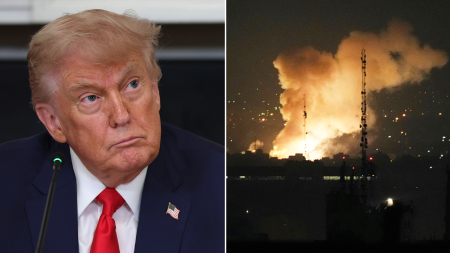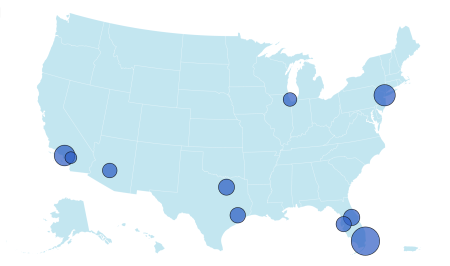The precarious security situation in Eastern Syria is teetering on the brink of collapse, with the Syrian Democratic Forces (SDF), the primary U.S. ally in the region, facing relentless attacks from Turkish forces and their affiliated Syrian National Army (SNA) proxies. SDF Commander General Mazloum Abdi, in an exclusive interview with Fox News, painted a grim picture of the escalating conflict, reporting a barrage of 80 drone strikes and intensive artillery shelling daily, effectively paralyzing the SDF’s crucial counterterrorism operations against ISIS. This surge in Turkish aggression follows the recent political upheavals in Syria, further destabilizing the region and jeopardizing the security of detention facilities holding thousands of ISIS militants and their families.
The constant Turkish onslaught has forced a significant portion of the SDF, tasked with guarding ISIS prisons and camps, to abandon their posts to protect their own families. This critical depletion of security forces has left these facilities extremely vulnerable. General Mazloum highlighted the Raqqa ISIS prison, housing approximately 1,000 former ISIS fighters, as a prime example of this vulnerability, where the number of guards has been halved, significantly increasing the risk of a prison break or other security breach. This dire situation presents a chilling warning from a staunch U.S. ally about the potential resurgence of ISIS if the current trajectory of violence continues unchecked. The precariousness of the situation is further amplified by the presence of 900 U.S. troops in Eastern Syria, whose withdrawal would become likely should the SDF crumble under the Turkish offensive, creating a dangerous power vacuum.
The United States, recognizing the gravity of the situation, is actively engaging with both the SDF and Turkey to de-escalate the conflict and maintain focus on the counter-ISIS mission. National Security Communications Adviser John Kirby emphasized the importance of these ongoing discussions, highlighting the U.S. commitment to preventing the resurgence of ISIS. Simultaneously, Secretary of State Antony Blinken’s visit to Turkey underscores the diplomatic efforts aimed at achieving stability in Syria. Blinken’s meeting with President Erdogan emphasized the importance of respecting human rights, adhering to international humanitarian law, and protecting civilians, while also stressing the critical need for the coalition to continue its mission against ISIS.
Military engagement remains a crucial aspect of the U.S. strategy. CENTCOM Commander General Erik Kurilla recently met with General Mazloum and the SDF, reaffirming the U.S. commitment to counterterrorism efforts. This meeting followed extensive U.S. airstrikes targeting ISIS positions in Eastern Syria, demonstrating the ongoing military pressure against the terrorist group. General Kurilla’s unequivocal message underscored the U.S. resolve to prevent ISIS from exploiting the current instability in Syria and hold any organization supporting ISIS accountable.
Amidst the escalating tensions, glimmers of hope have emerged with the announcement of a U.S.-brokered truce between the SDF and Turkey-backed rebels in northern Manbij, aimed at ensuring civilian safety. This ceasefire involved the withdrawal of Manbij Military Council fighters from the area. Furthermore, indications suggest a tentative ceasefire agreement in Aleppo and Deir Ezzor, further south along the Euphrates River. These fragile ceasefires represent crucial steps towards de-escalation, but their long-term viability remains uncertain in the face of persistent underlying tensions.
Looking ahead, General Mazloum expressed deep concern about the potential consequences of a U.S. withdrawal from Syria, warning that it would create a vacuum susceptible to exploitation by Islamist factions and ultimately lead to the resurgence of even more extreme terrorist organizations. He argues that the departure of U.S. forces would diminish the remaining influence of Russia and Iran, leaving the field open for a chaotic and unpredictable power struggle. This vacuum, according to General Mazloum, could embolden various Islamist groups, potentially aligning with ISIS and fueling a resurgence of terrorism in the region. He further emphasizes the need for an inclusive and representative Syrian government that incorporates all parties, including Syrian Kurds, to prevent a descent into a devastating civil war.
The complex interplay of these various actors and the volatile security situation underscores the fragility of the current peace and the urgent need for a comprehensive and sustainable solution. The accidental downing of a U.S. drone by the SDF, attributed to “friendly fire” amidst the Turkish offensive, further highlights the tense and unpredictable environment. The incident, where the SDF misidentified the drone as a threat, serves as a stark reminder of the challenges faced by forces operating in such a complex and rapidly evolving conflict zone. The path forward requires sustained diplomatic efforts, continued counterterrorism operations, and a commitment to building a stable and inclusive Syrian government to prevent the resurgence of ISIS and further bloodshed.
